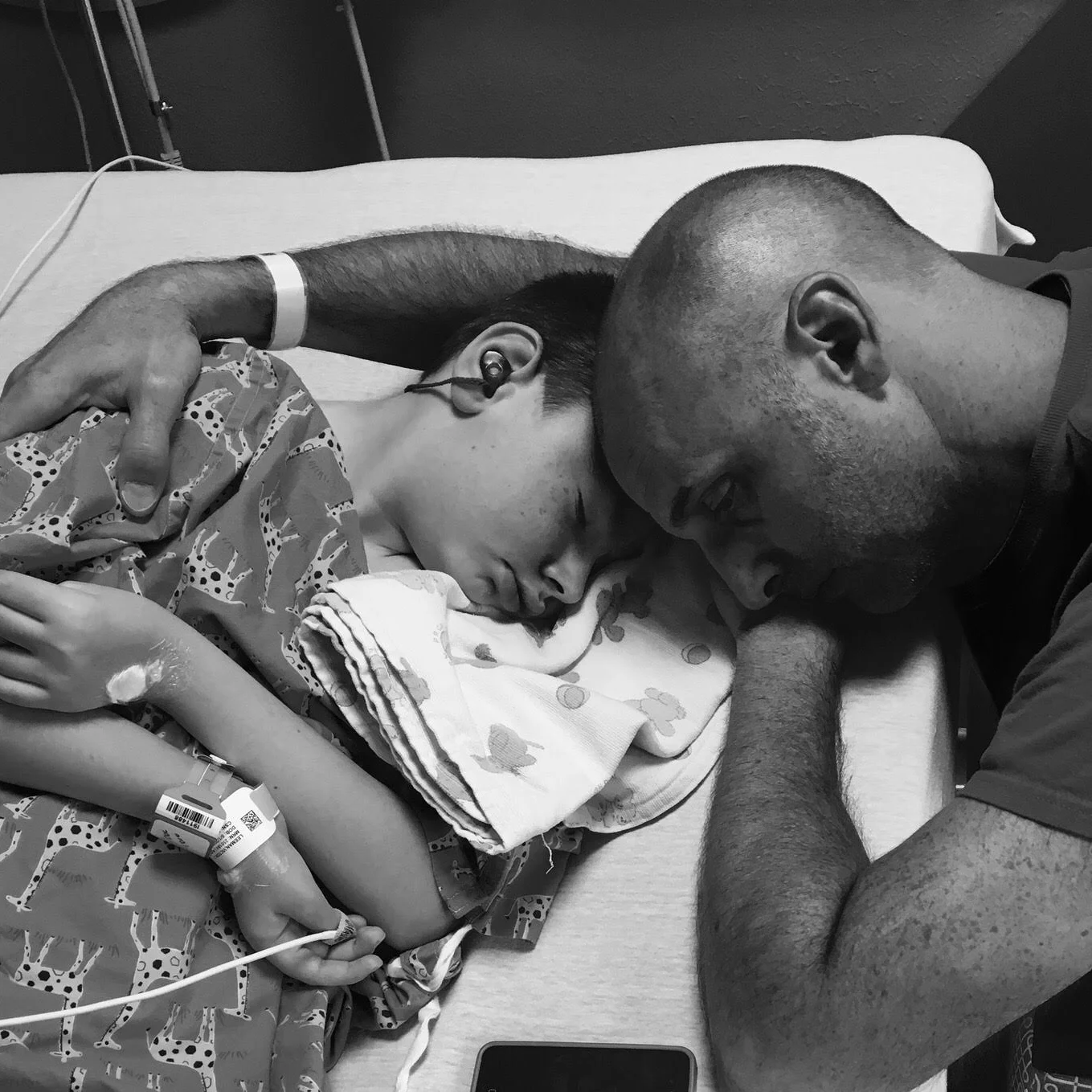Currently, Texas Governor Greg Abbott and Attorney General Ken Paxton are fighting to overturn the ACA. Governor Abbott, a pro-life politician, has said, “Texas has become the national leader in defending life. As governor, I will fight for every child to have a chance at life." But as I sit with my son Raphael, who has complex medical needs, I wonder—how is Texas defending life when it attempts to pull the ACA and Medicaid protections away from my son and many others like him?
I remember my pregnancy with Raphael: At five months pregnant, my husband and I are staring at a whiteboard. A world-class doctor has just finished writing our baby’s health issues on the board. He tells us it’s time to make a tough choice, and that if I were his daughter, he wouldn’t let my baby be born. We disagree—this baby is loved more than anything. We had tried for years to get pregnant, and had dreamed of the love we would show our baby. I dreamed of baby snuggles and laughs, and watching our child grow.
Fast forward eight months. My son, Raphael, has survived three months in the NICU, two surgeries, and countless medical procedures. We adjusted to life in the NICU, and I learned how to take care of my son’s medical needs. Every month on his “monthday” we would throw little NICU parties, complete with party hats and banners. Each night, we’d read him books and cuddle him to sleep. I learned infant massage and used oil to massage his tiny body.
We’d been home for a week when I woke up to see him lying limp and cold. In the scariest moments of my life, I performed CPR. Now I was at a different children’s hospital, in a trauma room, watching swarms of medical professionals surround my Raphael’s tiny, lifeless body as they worked to bring him back. The doctor told the team to work faster, that “this baby isn’t responding.” My heart nearly stopped—all I wanted was my son, alive.
For weeks after that horrible day, we sat by our son’s bedside, watching him slowly improve and stabilize. At this point, our medical bills (despite my excellent private health care plan) were skyrocketing—we received our first bill, for thousands of dollars, and panicked—how would we pay this on top of the hundreds of dollars we had been paying for weeks to park at the hospital? When you are inpatient, everything is more expensive: food, gas to get to the hospital each day, and all of the specialists. Because my pregnancy had been so complicated, we had already spent all of our flexible spending account funds.
At some point in those hazy hospital days, a social worker helped us walk through the paperwork so our son would qualify for a Medicaid waiver—state-federal secondary insurance coverage expanded in our state as a result of the ACA to protect more little Texans with complex medical needs. Without the ACA and Medicaid, my son’s life and our livelihood would be at risk. Raphael needs monthly shipments of medical supplies and multiple therapy visits per week, which are covered by Medicaid. He gets sick easily, and when he does, he tends to get REALLY sick. Those additional health costs are covered. Medicaid provides home nursing that keeps Raphael healthy and allows my husband and I to work at jobs that matter to us and provide for our family.
Raphael is now three. He loves playing soccer, going to swim class, and convincing his dad and me to take him to Chuck E. Cheese. He is supremely inquisitive (he’s teaching himself Spanish!) and incredibly loving; he adores his little sister and loves to shop with his shopping cart. Without Medicaid, Raphael would not be the thriving toddler he is today.
Both the ACA and Medicaid protect Raphael’s right to health care. Due to his complex medical needs, Raphael would not qualify for health insurance without the ACA’s guaranteed coverage of pre-existing conditions. Without the ACA and Medicaid, Raphael would have maxed out his lifetime health care cap long before his third birthday.
So, I sit with Raphael and wonder – how will he, and so many children like him, continue to survive and thrive if Governor Abbott and Attorney General Paxton succeed in taking away his health care rights?
[image description: Mom Gillian with Raphael and his baby sister and dad seated together in front of a window]


![[image description: Mom Gillian with Raphael and his baby sister and dad seated together in front of a window]](https://images.squarespace-cdn.com/content/v1/59d8124080bd5eadd869b8b7/1571918528727-GRAUH7S9QRFLS81NFHU7/Mom+Gillian+with+Raphael+and+his+dad+and+baby+sister)









